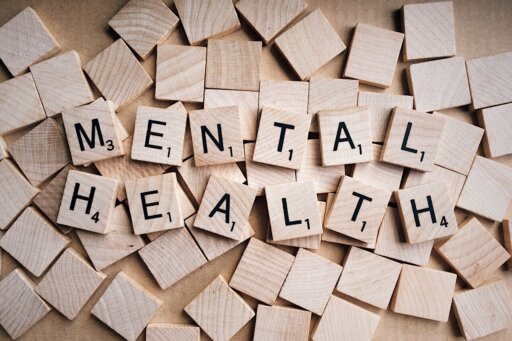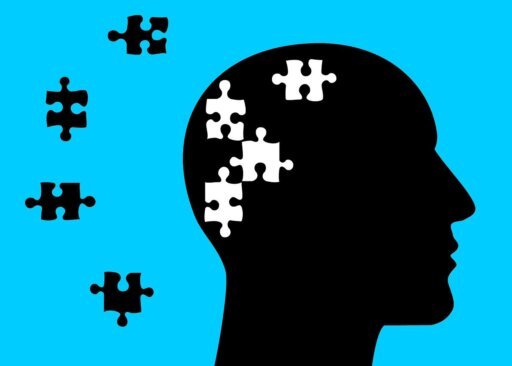Imagine being in the grip of a suffocating panic attack, your heart racing, your breath shallow, and your mind consumed with overwhelming fear. In those moments, it is not uncommon for the mind to wander to dark places, where thoughts of escape and even self-harm arise. This article explores the unsettling question: can panic attacks cause suicidal thoughts? Delving into the intricate connection between panic and suicide, we seek to understand the potential impact these debilitating episodes can have on one’s mental health and well-being.
Understanding Panic Attacks
Definition of panic attacks
Panic attacks are intense episodes of debilitating fear and anxiety that can occur unexpectedly and without any rational cause. During a panic attack, you may experience a sudden surge of overwhelming dread, accompanied by physical symptoms such as a rapid heartbeat, shortness of breath, dizziness, chest pain, and trembling. These episodes can be terrifying and may make you feel like you are losing control or even dying.
Symptoms of panic attacks
The symptoms of a panic attack vary from person to person, but some common signs include a pounding or racing heart, sweating, trembling or shaking, feelings of suffocation or choking, chest pain or discomfort, a sensation of being detached from oneself, fear of losing control or going crazy, and a fear of dying. These symptoms can be incredibly distressing and often lead individuals to fear experiencing another attack, which can perpetuate a cycle of anxiety and avoidance behaviors.
Causes of panic attacks
The exact causes of panic attacks are still not fully understood, but research suggests that a combination of genetic, biological, and environmental factors may contribute to their development. Some individuals may be biologically predisposed to experiencing panic attacks due to imbalances in neurotransmitters such as serotonin and norepinephrine, which are involved in regulating mood and anxiety. Additionally, stressful life events, traumatic experiences, and even certain medications or medical conditions can trigger panic attacks in susceptible individuals.
Impact of panic attacks on mental health
Panic attacks can have a profound impact on mental health, often leading to the development or exacerbation of anxiety disorders such as panic disorder or generalized anxiety disorder. Constant fear and worry of experiencing another panic attack can significantly impair daily functioning, disrupt relationships, and contribute to feelings of depression, isolation, and hopelessness. It is crucial to recognize that panic attacks are not a sign of weakness or character flaw, but rather a distressing symptom of underlying mental health issues that require appropriate support and treatment.
Understanding Suicidal Thoughts
Definition of suicidal thoughts
Suicidal thoughts, also known as suicidal ideation, encompass a range of thoughts and feelings related to taking one’s own life. These thoughts can range from fleeting considerations to detailed plans, and they can vary in intensity and frequency. It is important to understand that suicidal thoughts are a serious indication of extreme psychological distress and should never be ignored or dismissed.
Risk factors for suicidal thoughts
Several risk factors increase the likelihood of experiencing suicidal thoughts. Mental health disorders such as depression, bipolar disorder, and anxiety disorders are strong predictors of suicidal ideation. Other significant risk factors include a history of self-harm or suicide attempts, a family history of suicide or mental illness, a lack of social support or connection, and experiencing recent traumatic events or significant life stressors. It is essential to be aware of these risk factors, as they can help identify individuals who may be at increased risk of suicidal thoughts and take appropriate action.
Relationship between mental health and suicidal thoughts
Mental health issues and suicidal thoughts are closely intertwined. Mental health disorders can create a significant burden on individuals, leading to profound feelings of hopelessness, despair, and a distorted perception of reality. These distorted thoughts and feelings can contribute to the development of suicidal ideation. It is important to approach mental health concerns with empathy, understanding, and a commitment to providing appropriate support and resources to those in need.

Connection between Panic Attacks and Suicidal Thoughts
Research on the link between panic attacks and suicidal thoughts
Emerging research has indicated a potential connection between panic attacks and suicidal thoughts. Studies have found that individuals who experience frequent panic attacks are more likely to report having suicidal thoughts compared to those who do not experience panic attacks. However, further research is needed to better understand the underlying mechanisms and causal relationships between these two phenomena.
Theories explaining the connection
Several theories have been proposed to explain the connection between panic attacks and suicidal thoughts. One theory suggests that the experience of intense fear and physical symptoms during panic attacks may lead individuals to develop a negative interpretation of these experiences, perceiving them as life-threatening and unbearable. This negative appraisal can increase the likelihood of developing suicidal thoughts as a means to escape the perceived suffering.
Another theory suggests that panic attacks and suicidal thoughts may share common underlying risk factors, such as genetic predispositions, imbalances in neurotransmitters, and cognitive vulnerabilities. These shared risk factors may contribute to the co-occurrence of panic attacks and suicidal ideation.
Prevalence of suicidal thoughts among panic attack sufferers
While there is limited data on the exact prevalence of suicidal thoughts among panic attack sufferers, research suggests that panic disorder, which is characterized by recurrent panic attacks, is associated with a higher risk of suicidal ideation. It is crucial to recognize that experiencing suicidal thoughts is not a characteristic of everyone who has panic attacks, but the risk may be elevated in certain individuals. Awareness of this risk can support early intervention and appropriate treatment strategies to address both panic attacks and suicidal thoughts.
Psychological Impact of Panic Attacks
Increase in anxiety levels
Panic attacks can significantly increase anxiety levels, both during and after the episode. The intense fear experienced during a panic attack can lead to heightened vigilance and ongoing worry about future attacks. This chronic anxiety can take a toll on mental wellbeing, making it challenging to engage in daily activities and disrupting overall quality of life.
Feeling of helplessness and hopelessness
Experiencing panic attacks can engender a pervasive sense of helplessness and hopelessness. The unpredictable nature of panic attacks and the potent physical and emotional symptoms accompanying them can create a belief that one has no control over their own body and mind. This feeling of powerlessness can contribute to a sense of hopelessness and contribute to the development of suicidal thoughts.
Impact on self-esteem
Panic attacks can erode self-esteem and self-worth. The fear and embarrassment associated with experiencing panic attacks, especially in public settings, can lead to feelings of inadequacy and shame. Over time, these negative emotions can chip away at an individual’s self-esteem, further exacerbating the psychological impact of panic attacks.

Psychological Mechanisms
Role of cognitive distortions
Cognitive distortions, such as catastrophizing and overgeneralization, play a significant role in the maintenance of panic attacks and the development of suicidal thoughts. These distortions involve magnifying the severity of situations, jumping to negative conclusions, and believing that one’s experiences are always negative or indicative of personal failure. Addressing and challenging these distortions through cognitive-behavioral therapy (CBT) can help alleviate the psychological burden of panic attacks and reduce the risk of suicidal ideation.
Negative thought patterns
Individuals experiencing panic attacks may engage in negative thought patterns, such as self-blame, self-criticism, and excessive worry, which can perpetuate the cycle of anxiety and increase the risk of developing suicidal thoughts. Cognitive restructuring techniques, often employed in therapy, can help individuals recognize and challenge these negative thought patterns, fostering a healthier mindset and reducing the likelihood of suicidal ideation.
Association between panic attacks and suicidal ideation
While the exact association between panic attacks and suicidal ideation is not fully understood, research suggests that the experience of panic attacks may contribute to the development of suicidal thoughts indirectly. The chronic distress caused by panic attacks, coupled with the psychological mechanisms mentioned above, may increase the vulnerability of individuals towards suicidal ideation. Understanding this association is crucial for clinicians and mental health professionals to tailor appropriate treatment approaches for individuals struggling with panic attacks and suicidal thoughts.
Physiological Factors
Neurotransmitter imbalances
Imbalances in neurotransmitters, such as serotonin and norepinephrine, have been found to contribute to both panic attacks and suicidal thoughts. Serotonin plays a crucial role in mood regulation, and deficiencies in this neurotransmitter have been associated with increased anxiety and depression. Similarly, imbalances in norepinephrine, which is involved in the body’s stress response, can contribute to the development and severity of panic attacks. The interplay between these neurotransmitters may help explain the overlapping physiological factors that contribute to both panic attacks and suicidal thoughts.
Hormonal imbalances
Hormonal imbalances, such as dysregulation of the hypothalamic-pituitary-adrenal (HPA) axis, have also been implicated in the development of panic attacks and suicidal thoughts. Chronic stress, which can disrupt HPA axis functioning, has been shown to increase vulnerability to panic attacks and the development of mental health issues. Additionally, hormonal imbalances related to various medical conditions or medications can also contribute to the manifestation of panic attacks and potentially exacerbate suicidal ideation.
Effects of chronic stress
Chronic stress, often experienced by individuals with panic attacks, can have wide-ranging effects on mental and physical wellbeing. Prolonged exposure to stress can lead to exhaustion of the body’s stress response system, compromising its ability to cope with future stressors. This exhaustion can contribute to the development of mental health issues, including panic attacks and suicidal thoughts. Learning effective stress management techniques, such as mindfulness and relaxation exercises, can be beneficial for individuals experiencing panic attacks and the accompanying psychological distress.

Social Factors
Isolation and lack of support
Isolation and a lack of support are significant social factors that can contribute to both panic attacks and suicidal thoughts. Individuals experiencing panic attacks may withdraw from social interactions due to the fear of experiencing an attack in public. This social isolation can further exacerbate feelings of loneliness, hopelessness, and contribute to the development of suicidal ideation. Building a support network of understanding friends, family, or support groups can provide invaluable emotional support and reduce the risk of suicidal thoughts.
Stigma surrounding mental health
The stigma surrounding mental health can have profound effects on individuals experiencing panic attacks and suicidal thoughts. Fear of judgment and discrimination may prevent individuals from seeking professional help or openly discussing their struggles. This silence can exacerbate feelings of shame and worsen the psychological impact of panic attacks, potentially increasing the risk of developing suicidal thoughts. Educating society and promoting acceptance and understanding of mental health can help reduce stigma and encourage individuals to seek the help they need.
Role of social media
Social media can have both positive and negative effects on individuals experiencing panic attacks and suicidal thoughts. On the one hand, social media platforms can provide a sense of community and support, connecting individuals with others who share similar experiences. On the other hand, excessive exposure to triggering or distressing content online can exacerbate anxiety and increase the risk of suicidal ideation. It is crucial to be mindful of the impact social media can have on mental health and actively curate one’s online environment to promote positive mental wellbeing.
Risk Factors for Suicidal Thoughts in Panic Attack Sufferers
Personal history of mental health issues
Individuals with a personal history of mental health issues, such as anxiety disorders or depression, are at an increased risk of experiencing suicidal thoughts in conjunction with panic attacks. These pre-existing mental health conditions can further compound the distress and psychological burden associated with panic attacks, heightening the risk of suicidal ideation. Early intervention and appropriate treatment for underlying mental health issues are vital to reduce the likelihood of suicidal thoughts.
Family history of suicide or mental illness
A family history of suicide or mental illness is another significant risk factor for suicidal thoughts in individuals experiencing panic attacks. Genetics, shared environments, and learned behaviors within families can influence the development of mental health issues and suicidal ideation. Being aware of this risk factor and implementing preventative measures, such as providing education and support, can help mitigate the impact of family history on panic attack sufferers.
Co-occurring disorders and substance abuse
Co-occurring mental health disorders, such as substance use disorders or personality disorders, can significantly increase the risk of suicidal thoughts in individuals with panic attacks. The presence of multiple mental health issues can intensify the psychological distress and decrease the individual’s capacity to cope effectively. Treating both co-occurring disorders simultaneously through an integrated treatment approach is essential to address the root causes of suicidal thoughts in panic attack sufferers.
Recognizing Warning Signs
Physical signs
Recognizing the warning signs of suicidal thoughts in individuals experiencing panic attacks is crucial for early intervention. Physical signs can include changes in appetite or sleep patterns, unexplained headaches or body aches, fatigue, and frequent or unexplained illnesses. These physical symptoms may often manifest as a result of chronic stress and psychological distress, warranting further assessment for potential suicidal thoughts.
Emotional and behavioral signs
Emotional and behavioral signs can also indicate the presence of suicidal thoughts. These signs may include persistent feelings of sadness, hopelessness, or worthlessness, excessive irritability or anger, withdrawing from social activities or relationships, giving away prized possessions, or engaging in risky or self-destructive behaviors. Any significant changes in mood, behavior, or expression of emotions should prompt concerned individuals to reach out and provide support.
When to seek professional help
If you or someone you know is experiencing panic attacks and is also exhibiting warning signs of suicidal thoughts, it is crucial to seek professional help immediately. Mental health professionals, including therapists, counselors, or psychiatrists, are trained to assess and provide appropriate interventions for individuals struggling with panic attacks and suicidal ideation. Do not hesitate to reach out for help, as early intervention can be lifesaving.
Addressing Suicidal Thoughts in Panic Attack Treatment
Integrated treatment approach
Addressing suicidal thoughts in the treatment of panic attacks requires an integrated approach that focuses on both the panic attacks and the underlying mental health issues. This approach often involves a combination of medication management and therapy. Medications, such as selective serotonin reuptake inhibitors (SSRIs), can help regulate neurotransmitters and reduce symptoms of anxiety and depression. Therapy, particularly cognitive-behavioral therapy (CBT), can provide individuals with coping strategies, challenge negative thought patterns, and promote healthier behaviors.
Medication management and therapy
Medication management is an essential component of treating panic attacks and suicidal thoughts. Under the guidance of a psychiatrist or medical professional, medication can help stabilize mood, reduce anxiety, and alleviate symptoms associated with panic attacks. Therapy, such as CBT or dialectical behavior therapy (DBT), can complement medication management by providing individuals with valuable tools to manage stress, regulate emotions, and address underlying psychological factors contributing to panic attacks and suicidal thoughts.
Building a support network
Building a strong support network is vital for individuals experiencing panic attacks and suicidal thoughts. This network can include trusted friends, family members, support groups, or mental health professionals. Having a supportive environment where feelings can be openly discussed, understanding can be offered, and resources can be shared can provide immense comfort and help reduce feelings of isolation. In addition to formal support networks, self-help resources, such as books and online forums, can also be valuable sources of encouragement and guidance.
In conclusion Can Panic Attacks Cause Suicidal Thoughts
Understanding the connection between panic attacks and suicidal thoughts is important for recognizing the risks, implementing appropriate interventions, and providing support to individuals experiencing these challenges. By addressing the underlying psychological, physiological, and social factors contributing to both panic attacks and suicidal thoughts, mental health professionals can help individuals navigate the complexities of their experiences and develop effective coping strategies. Remember, seeking help is not a sign of weakness but a courageous step towards healing and finding hope in the face of adversity. You are not alone, and there is support available to guide you through your journey toward improved mental health and wellbeing.